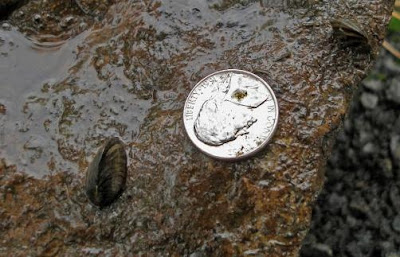A recent discovery of zebra mussel shells in a popular southwest metro lake has state conservation officials concerned.
 The state Department of Natural Resources wants boaters and anglers on Prior Lake to take extra precautions amid what the agency is calling a likely infestation.
The state Department of Natural Resources wants boaters and anglers on Prior Lake to take extra precautions amid what the agency is calling a likely infestation.Officials have yet to determine whether the shells originally came from live zebra mussels in the lake or were brought to the area on equipment and fell off.
If the presence of zebra mussels is confirmed in Prior Lake, it could pose risks for other waters, said Luke Skinner, supervisor of DNR's invasive species unit.
"As one of the larger lakes in the Twin Cities metro area, Prior Lake has significant boat traffic, with people coming and going all the time," Skinner said. "Everyone is going to have to be extra vigilant to keep from spreading these pests to other waters."
The problem was first detected when a homeowner reported finding unusual looking shells along the southeast shore of lower Prior Lake. DNR biologists then found about a dozen empty zebra mussel shells.
The agency said its staff will look for zebra mussels in the lake and around boat docks as soon as the ice is off the lake and will designate the lake as infested if live zebra mussels are found.
A nonnative invasive species, zebra mussels pose serious ecological and economic threats to Minnesota's lakes and streams. Heavy infestations can kill native mussels, may impact fish populations, can interfere with recreation, and can increase costs for industry, including power and water supply facilities.
Native to Eastern Europe and western Russia, zebra mussels were first discovered in Minnesota in 1989 in the Duluth harbor. They subsequently have spread to eight inland lakes, including Mille Lacs, and to portions of the Mississippi, St. Croix and Zumbro rivers.
The DNR is asking boaters to:
• Inspect and remove all visible aquatic plants, animals and mud from boat lifts, swim rafts, trailers, aluminum boat docks, and equipment such as anchors before leaving a water access.

No comments:
Post a Comment